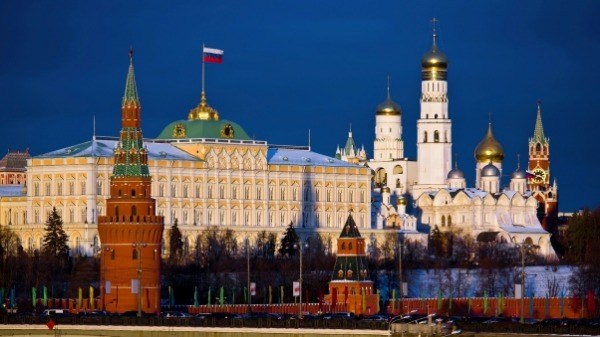Kremlin prepares for total economic isolation
The Russian presidential administration and government are preparing for a further tightening of the anti-Russian sanctions as was the case with Venezuela, Iran and North Korea, with a ban on investing in state debt, the blacklisting of state banks, making it impossible to conduct transactions in dollars, and the exclusion of Russia from the SWIFT interbank transfer system, RBC news agency reports with reference to two federal officials familiar with the discussion process, and a source close to the Kremlin.
According to one of the sources, the Russian government envisions two possible sanction options for investors in Russian state bonds, markets which are one third controlled by foreign actors who own $41 billion in Federal Loan Bonds (OFZs) and $15 billion in eurobonds.
The first is mild, and was already implemented in Venezuela: Washington will ban American legal and physical entities from holding and transacting Russian state bonds with a maturity of more than 30 days. This brought down the national currency – the bolivar – and boosted inflation to 2600% per annum (according to the IMF).
However, the approach is likely to be stricter, with exterritorial restrictions. Although the US government cannot directly prohibit European investors from purchasing Russian OFZs and eurobonds, they can create secondary sanctions. Such an approach is already being used against Russian defense enterprises.
As a protective measure, the Russian government is considering the possibility of creating a special bank for the purchasing of Russian state debt, which will take steps to cover up the buyers’ names, a federal official said.
In addition, there are plans to actively encourage the local population to purchase OFZs: in January this year, Prime Minister Dmitry Medvedev gave an order to increase the state bonds to citizens by 100 billion rubles.
Disconnection from SWIFT – as happened to Iran and North Korea – will be more difficult to overcome, the sources admitted.
The Kremlin fears that it may bring down the Russian banking system and halt external payments, especially for gas. For this scenario, Moscow is investigating the possibility of carrying out external payments through so-called bridge companies, the officials noted.
So far only two countries have been cut off from SWIFT. Iranian banks were cut off in 2012, and North Korean banks in 2017. However, in both cases the countries were under sanctions from the UN, and the decision to disconnect Iran from SWIFT was made by the EU.
Another cause for concern is the possible tightening of sanctions against the major Russian banks, especially Sberbank and VTB, a source close to the presidential administration told RBC.
Both banks are currently under sectoral sanctions, and since 2014 their access to international borrowed capital markets has been restricted. However, a ban on correspondent accounts in the US, or inclusion in the Specially Designated Nationals (SDN) list would be far more severe, and would make international operations virtually impossible.
The US has already placed several Russian banks on the SDN list, the most notable of them being AB Rossiya, but there have not yet been any public banks among them. The situation with Rusal has demonstrated what happens when public companies are placed on the SDN list: the share price plummets, foreign investors sell off securities, and counterparties abroad (not only in the US) terminate operations with the company.
The bill on sanctions against Russian state debt and state banks was put forward in US Congress two weeks ago. The Donald Trump Administration has drafted its bill to tighten the sanction regime, but has postponed its implementation, The Washington Post reports.
